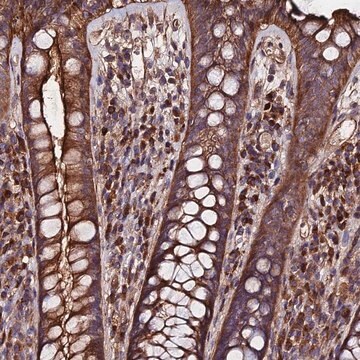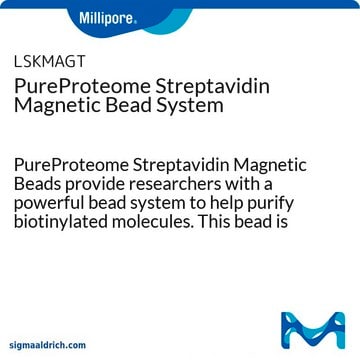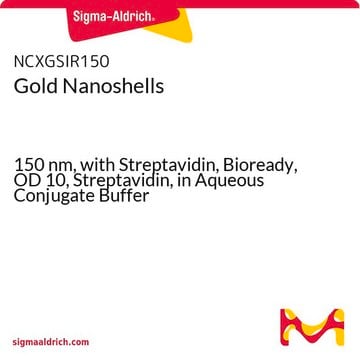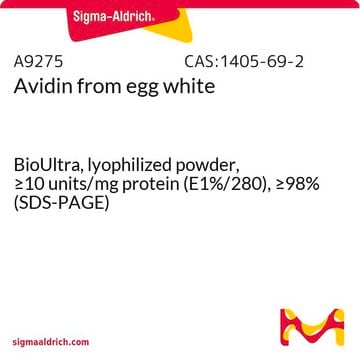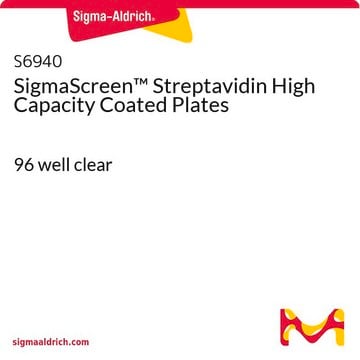RSTREP-RO
Roche
Streptavidin, recombinant
liquid, ≥17 units/mg protein, pH range 5.0-9.0
Synonym(s):
streptavidin
About This Item
Recommended Products
biological source
Streptomyces sp. ( Streptomyces avidinii)
Quality Level
recombinant
expressed in E. coli
form
liquid
specific activity
≥17 units/mg protein
mol wt
~52 kDa
packaging
pkg of 1 mg (11721666001)
pkg of 5 mg (11721674001)
manufacturer/tradename
Roche
concentration
70-90%
technique(s)
protein array: suitable
protein purification: suitable
impurities
6-7% water
pH range
5.0-9.0
pI
7.4-7.7 (two main bands)
solubility
water: 10 mg/L (mA405=100)
suitability
suitable for immunological tests
UniProt accession no.
shipped in
cooler
storage temp.
-10 to -25°C
General description
Application
Sequence
Each subunit has six tyrosine residues.The protein is free of carbohydrate.
Unit Definition
Physical form
Protein: 0.7 ± 0.1mg protein lyophilizate (A282 = 3.1)
KD: 10-15M
Other Notes
Storage Class Code
11 - Combustible Solids
WGK
WGK 1
Flash Point(F)
does not flash
Flash Point(C)
does not flash
Certificates of Analysis (COA)
Search for Certificates of Analysis (COA) by entering the products Lot/Batch Number. Lot and Batch Numbers can be found on a product’s label following the words ‘Lot’ or ‘Batch’.
Already Own This Product?
Find documentation for the products that you have recently purchased in the Document Library.
Customers Also Viewed
Our team of scientists has experience in all areas of research including Life Science, Material Science, Chemical Synthesis, Chromatography, Analytical and many others.
Contact Technical Service





